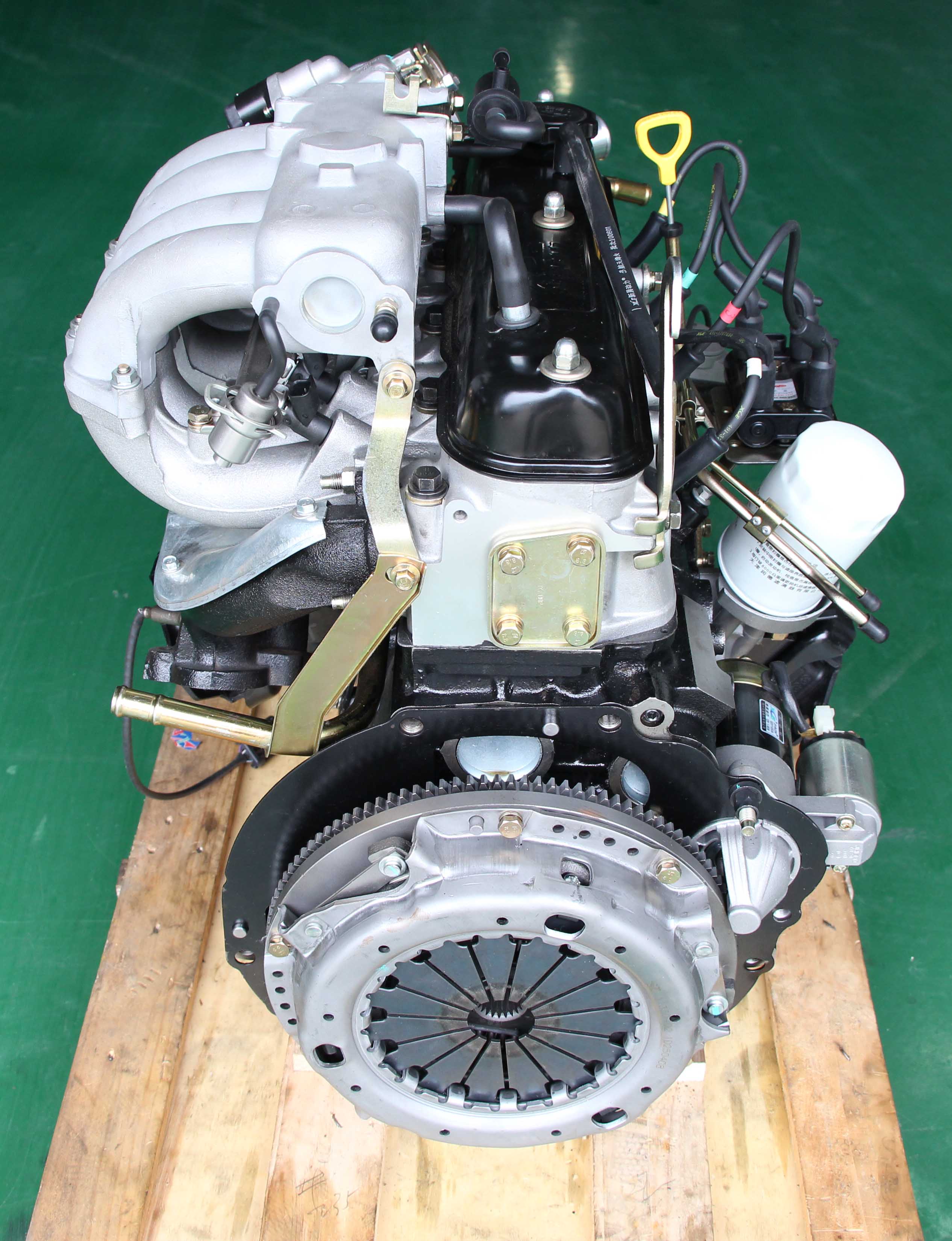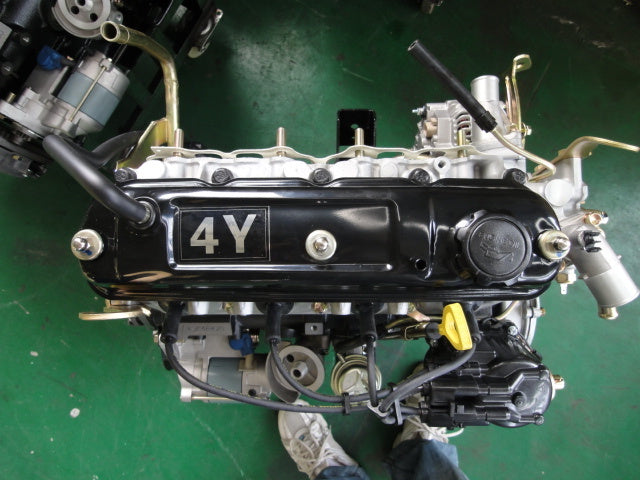How the 4Y Engine Powers Your Vehicle with Efficiency and Reliability
Discovering the Various Types of Engine: Which One Fits Your Needs?
Interior combustion engines proceed to control due to their reliability, while electrical engines are obtaining grip for their sustainability. Crossbreed engines provide a versatile concession, and diesel engines stand out for their power in requiring applications.

Inner Combustion Engines
Internal burning engines (ICEs) are the backbone of modern transport, powering a huge range of vehicles from autos to planes. These engines operate the concept of transforming fuel right into power via a series of regulated explosions within a combustion chamber. One of the most typical kinds of ICEs include fuel engines, diesel engines, and rotating engines, each made to fulfill particular efficiency and efficiency requirements.
Fuel engines generally use spark ignition, while diesel engines count on compression ignition, leading to distinctive differences in fuel performance and power output (4y engine). Rotating engines, or Wankel engines, provide a portable design and smooth operation, yet are less commonly utilized in mainstream applications
ICEs have actually undergone considerable advancements in innovation, including the intro of turbocharging and gas injection systems, which boost general efficiency and efficiency. Regardless of their efficiency enhancements, ICEs deal with raising scrutiny because of their environmental effect, especially regarding greenhouse gas emissions. As the automobile market advances, the future of ICEs stays a subject of discussion, stabilizing efficiency, efficiency, and environmental considerations. They continue to play an essential duty in worldwide transportation facilities.
Electric Engines
As worries regarding environmental sustainability and nonrenewable fuel source dependence expand, electrical engines have actually become an engaging alternative to internal burning engines. These engines use electric motors powered by batteries or fuel cells, supplying a cleaner and a lot more efficient motive powers.
Among the main advantages of electrical engines is their minimized discharges. Unlike standard engines that shed fossil gas, electric engines produce zero tailpipe exhausts, significantly decreasing air pollution and contributing to boosted public health and wellness. Additionally, the effectiveness of electrical motors often surpasses that of interior combustion engines, transforming a greater proportion of power from the source of power right into functional power for motion.
Electric engines are additionally remarkable for their peaceful operation, making them ideal for city environments. 4y engine. The simpleness of their design causes less relocating components, which can cause reduced maintenance prices and enhanced reliability with time
However, obstacles remain, including battery manufacturing impacts, billing facilities, and array limitations. Regardless of these hurdles, the growing financial investment in electrical vehicle modern technology and eco-friendly energy resources factors toward an appealing future for electrical engines, positioned to play an essential function in the change towards sustainable transportation.
Crossbreed Engines
Blending the advantages of both conventional and electrical inner burning engines, hybrid engines represent a flexible option in the pursuit for efficient and sustainable transportation. These engines incorporate a gasoline or diesel engine with an electric motor, enabling enhanced gas performance and lowered emissions compared to traditional automobiles.
Crossbreed engines run in numerous settings, making use of the electrical motor for low-speed driving and the internal combustion engine for higher speeds or when even more power is required. This vibrant procedure not just boosts gas economic situation but also contributes to a smoother driving experience. Regenerative stopping is an additional essential feature, recording power typically lost during braking and redirecting it to recharge the battery.

As consumers increasingly focus on eco-friendliness, hybrid engines stand out as a sensible choice, using an efficient balance of efficiency, effectiveness, and ecological obligation. This adaptability makes them appropriate for urban travelling and long-distance travel alike.
Diesel Motor
Efficiency and power are characteristics of diesel engines, which have actually long been preferred for their toughness and gas economic situation. These engines operate the concept of compression ignition, where air is compressed to a heat before fuel is injected, igniting it without the demand for ignition system. This procedure allows diesel motor to achieve greater thermal performance compared to fuel engines, translating right into far better fuel gas mileage and lower carbon dioxide exhausts.
Diesel motor are particularly fit for heavy-duty applications such as trucks, buses, and commercial equipment, where torque and resilience are extremely important. Their design usually consists of more powerful parts to endure the higher stress created throughout procedure, resulting in longer life span and decreased maintenance expenses.

Alternate Fuel Engines
While diesel engines have long controlled the landscape of durable power resources, alternative fuel engines are gaining grip as feasible choices for a more lasting future. These engines get more use a range of fuels, such as pressed gas (CNG), hydrogen, ethanol, and propane, intending to decrease greenhouse gas emissions and reliance on nonrenewable fuel sources.
One considerable advantage of different fuel engines is their potential to reduced carbon footprints. For example, CNG engines give off less pollutants contrasted to standard diesel engines, making them ideal for urban transportation systems and fleets seeking to boost air high quality. Ethanol, stemmed from biomass, not just decreases exhausts but additionally supports agricultural economies.
Hydrogen gas cells represent a cutting-edge advancement in this world, offering zero-emission power with a chemical response between hydrogen and oxygen. However, obstacles such as infrastructure advancement and manufacturing prices remain challenges to prevalent adoption - 4y engine.
Verdict
Internal combustion engines offer integrity, while electrical engines focus look at this site on sustainability and minimized maintenance. Hybrid engines combine the advantages of both, enhancing performance, whereas diesel engines give remarkable power and torque for durable applications.
Hybrid engines offer a versatile concession, and diesel engines stand out for their power in requiring applications. The most typical types of ICEs consist of gas engines, diesel engines, and rotary engines, each designed to fulfill specific efficiency and performance requirements.
Unlike conventional engines that melt fossil gas, electric engines generate no tailpipe discharges, considerably lowering air contamination and contributing to improved public wellness.Hybrid engines run in a number of modes, making use of the electrical motor for low-speed driving and the interior combustion engine for greater speeds or when even more power is needed. Crossbreed engines integrate the advantages of both, enhancing performance, whereas diesel engines supply superior power and torque for sturdy applications.